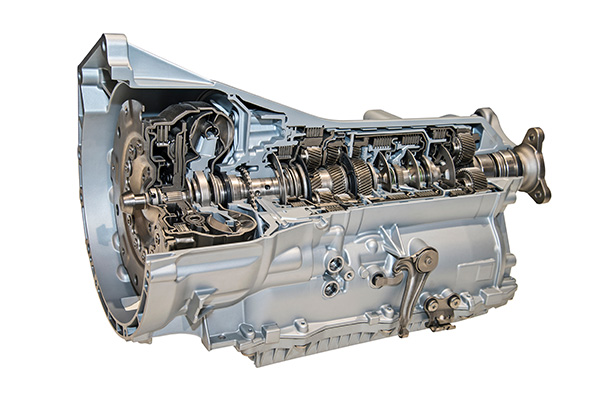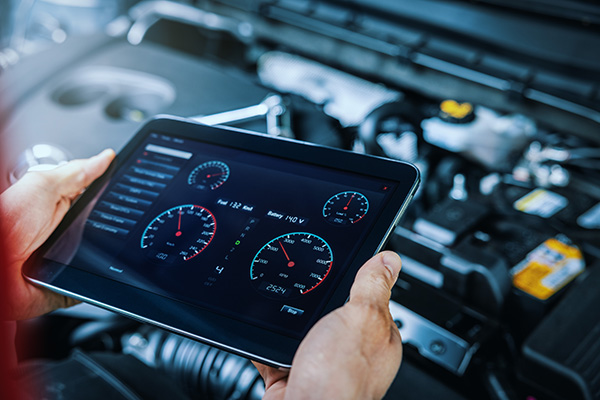Posted on 7/26/2024

When was the last time you checked your tires? If you're like most drivers, it's probably been a while. Tires are one of the most critical components of your vehicle, directly affecting safety, fuel efficiency, and driving comfort. Yet, they often don't get the attention they deserve until something goes wrong. Understanding the signs that indicate it's time to replace your car's tires can save you from unexpected breakdowns and ensure your vehicle performs at its best. Visible Tread Wear One of the most obvious signs that your tires need replacing is visible tread wear. The tread on your tires provides the necessary grip to keep your car stable on the road, especially in wet or slippery conditions. Over time, this tread wears down, reducing your tire's effectiveness. You can check the tread depth with a simple penny test - insert a penny into the tread groove with Lincoln's head upside down. If you can see the top of Lincoln's ... read more
Posted on 6/27/2024

The torque converter plays a crucial yet often overlooked function in your vehicle. Ever wonder how your car transitions seamlessly from a stop to motion, especially in an automatic transmission? Welcome to the fascinating world of torque converters. We understand the intricacies of automotive components and aim to explain them to our customers. So, let's explore how a torque converter works and why it's essential for your vehicle's performance. What is a Torque Converter? A torque converter is an ingenious device nestled between the engine and the transmission in automatic vehicles. Its primary function is to transfer rotating power generated by the engine to the transmission, ensuring the car moves smoothly without any manual intervention. Imagine trying to move a bike from a standstill on an uphill climb – that's what your engine faces and the torque converter is its best ally. How a Torque Converter Operates The torque con ... read more
Posted on 5/29/2024

Diesel cars have long been known for their durability, fuel efficiency, and torque-rich performance. However, these benefits come with a unique set of maintenance requirements. We'll explore the specific needs of diesel engines and how they differ from their gasoline counterparts. Understanding these differences can help you keep your diesel vehicle running smoothly for years to come. How Diesel Engines Differ from Gasoline Engines Diesel engines operate differently from gasoline engines, primarily in the way they ignite fuel. While gasoline engines use spark plugs to ignite the air-fuel mixture, diesel engines rely on compression to achieve combustion. This fundamental difference results in various unique maintenance requirements for diesel vehicles. Fuel System Maintenance One of the ways of maintaining a diesel engine is ensuring the fuel system ... read more
Posted on 4/28/2024

Automatic transmissions are in most modern vehicles, providing seamless gear shifting for a smooth driving experience. However, many drivers don't know how they work and overlook the importance of maintaining this critical system. Learn how they function and what essential maintenance practices keep them running smoothly. How Automatic Transmissions Work Automatic transmissions utilize hydraulic and electronic systems to shift gears automatically, relieving drivers of the need to change gears manually. Components such as torque converters, planetary gear sets, and hydraulic pumps work in tandem to regulate power delivery to the wheels, ensuring optimal performance and efficiency. Common Transmission IssuesTransmission Fluid Leaks Transmission fluid leaks are a common issue that can lead to low fluid levels and eventual transmission failure. Regularly inspecting for leaks and addressing them promptly is essential for preserving ... read more
Posted on 3/28/2024

Have you ever wondered how mechanics can identify car problems so accurately? Well, it's all thanks to computer diagnostics. Cars are equipped with advanced onboard computers that can diagnose various issues. What are the advantages of computer diagnostics, and when should you consider using them? Let's explore this important aspect of modern car maintenance. The Power of Computer Diagnostics Pinpoint Accuracy In the past, fixing car issues often involved a lot of trial and error. Mechanics had to rely on experience and intuition to figure out what was wrong. But with computer diagnostics, it's like having a magnifying glass for your car's inner workings. These systems provide mechanics with precise data about how your vehicle is performing. This means they can pinpoint problems quickly and accurately, saving you time and money in the long run. Plus, by addressing the root cause of the issue, they can prevent it from happening again in ... read more